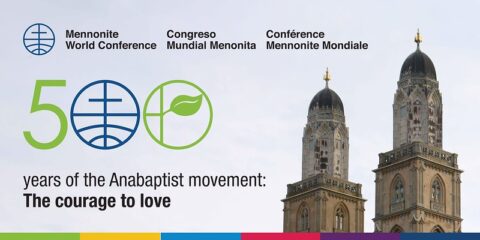A reflection on Anabaptism@500 in Zurich
by Gerald Schlabach
Long-time Bridgefolk participants remember the booming voice of the late Ivan Kauffman celebrating historic moments that have marked the development of closer relationships between Mennonites, Roman Catholics, and other divided Christians: “It’s a miracle!”
Kauffman would almost shout it. But he had a solidly empirical definition for miracles to match his exuberance: “Things that everybody agreed could not happen, but that happened anyway.”
If Kauffman could have been in Zurich, Switzerland on 29 May 2025, we would surely have heard his booming voice again. Commemorating the 500th anniversary of the Anabaptist movement that began in January of 1525, its spiritual descendants in Mennonite, Amish, Hutterite, and related churches gathered at the city’s Grossmünster cathedral there at the invitation of Mennonite World Conference (MWC).
The site itself was a miracle. For another invitation had come from the Reformed Church of Switzerland, and the City of Zurich, which once had violently condemned the Anabaptists. The cathedral is where Ulrich Zwingli – inspired by Martin Luther but a formidable theologian in his own right – began his preaching in 1519, and with it the Swiss branch of the Protestant Reformation.


